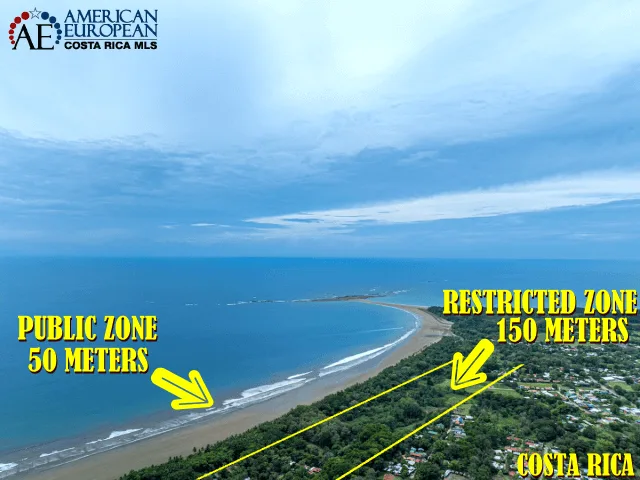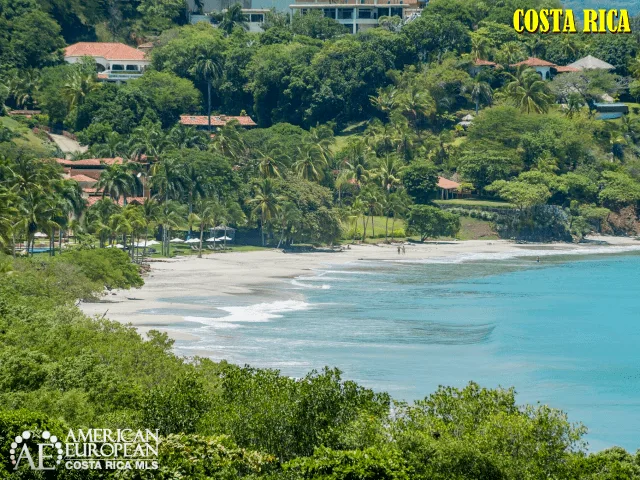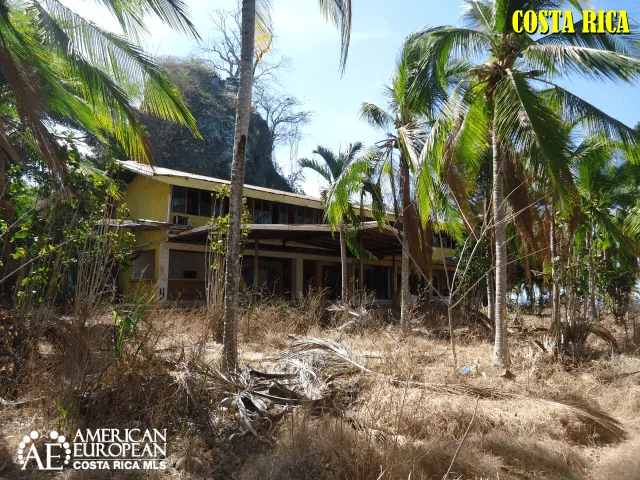Estimated Reading Time: 6 Minutes
Due to the significant restrictions, it is essential to learn as much as possible about Costa Rica’s beachfront property before purchasing it. To begin, find an attorney who specializes in maritime law and zoning. Most attorneys probably know as much about maritime zoning and beachfront property as a realtor in the Central Valley does.
Most beachfront properties in our country are not titled but are in concession. Concession beachfront property has many restrictions, so it is essential to consult with your attorney before making a purchase. I insist you do this before you believe what your real estate agent tells you.
Purchasing and developing beachfront property in Costa Rica is governed by specific and sometimes complex legal regulations that aim to preserve the environment, promote equitable land use, and respect national interests. Understanding these restrictions is essential for anyone considering real estate investment in Costa Rica’s coastal regions.

Concession Revoked?
Have you purchased a beachfront property in the past without being a legal resident of Costa Rica? Then, you probably formed a corporation and obtained 100% ownership, which was a common practice then. In a corporation such as Sociedad Anónima, the shareholders were not visible. However, with RTBF, the government can now identify the shareholders, allowing the Municipality to revoke the concession.
If that’s the case with the beachfront property or concession you own, what is the solution? Call your lawyer ASAP!
The Maritime Zone Law
The most significant legal framework governing beachfront property in Costa Rica is the Law on the Maritime Terrestrial Zone (Zona Marítimo Terrestre or ZMT), established in 1977. Under this law, the first 200 meters of land measured from the high-tide mark on any coastal property are considered public and are subject to special regulation.
The 200-meter zone is divided into two distinct sections:
Public Zone (Primera Línea or First 50 meters)
This first 50-meter strip from the high tide line is entirely public and cannot be owned, leased, or developed by private individuals or companies. It is protected for public use and conservation and is usually left undeveloped to preserve the natural environment. Exceptions may exist for port facilities or public infrastructure.
Restricted Zone (Next 150 meters)
The following 150 meters are known as the restricted zone. Although this land may not be privately owned outright, it can be leased from the local municipality through a concession. A concession grants temporary usage rights for a set period, which can be renewed. These concessions are governed by both national law and local zoning plans.

Concession Property
In Costa Rica, concession land refers to government-owned land leased to individuals or businesses for a specific period, typically in coastal or protected areas. This type of land is primarily found within the Maritime Zone (Zona Marítimo Terrestre, ZMT), which encompasses the first 200 meters from the high-tide line along the coast.
Ownership
The government retains ownership, and individuals or companies can only lease it through a concession.
- Concessions are usually granted for 5 to 20 years but can be renewed.
- Foreigners are limited to owning no more than 49% of a concession. To obtain a concession, a foreigner must have been a legal resident of Costa Rica for at least five years.
- The local municipality regulates concessions, and depending on zoning laws, their use is restricted to tourism, residential, or commercial purposes.
- The concession can be revoked if the leaseholder fails to comply with regulations or if the government decides to alter the land use.
Who Can Obtain Concessions?
There are important restrictions on who can legally obtain a concession for beachfront property in the restricted zone:
- Only Costa Rican citizens or corporations with majority Costa Rican ownership (at least 51%) can hold concessions directly.
Foreign individuals or corporations can still participate through partnerships, acquiring property held in trust, or partnering with a qualified Costa Rican entity. - No concessions are granted within certain distances of international borders or in areas deemed environmentally sensitive or culturally protected.
Zoning and Development Regulations - Municipalities must develop Regulatory Plans (Planes Reguladores) to determine how concession land in the restricted zone may be used. These plans outline whether land is designated for residential, tourist, or commercial use, including density, height, and environmental impact limitations.
Construction
Before development is approved, a project must receive multiple permits, including:
- An environmental viability study from the SETENA – Ministry of Environment and Energy (MINAE)
- Conformity with the local regulatory plan
- Construction permits from the municipality
The approval process can be lengthy, especially in ecologically sensitive regions such as the Nicoya Peninsula or Osa Peninsula, where conservation efforts are a top priority.
Environmental Protections
Costa Rica is internationally recognized for its robust environmental protections, particularly evident in its coastal areas. Many beaches are located near or within national parks, wildlife refuges, or protected wetlands, and development in these areas is heavily restricted or prohibited.
Additionally, setbacks from rivers, mangroves, and estuaries are enforced to minimize ecological disruption. Developers must also consider the risk of erosion, rising sea levels, and the preservation of turtle nesting grounds.

Exceptions for Beach Front Property
The Maritime Zoning Law was not applied retroactively. Any previously titled beachfront home, oceanfront property, or beachfront lot can be freely transferred. Of course, this titled property is scarce. These cases involve rights registered in colonial times.
Where the 150-meter restricted zone does not have an approved zoning plan or “plan regulador,” you may find an “arriendo”—lease agreement.
Due diligence
Before purchasing any Costa Rica beachfront property or beach condo, ensure you conduct thorough due diligence on the legality of the real estate transaction. Then, check on the beachfront property restrictions. Make an option to purchase—sale agreement that is subject to being able to close on the property.
If you’re interested in purchasing property in a specific beach area of Costa Rica, don’t hesitate to contact us now.


















